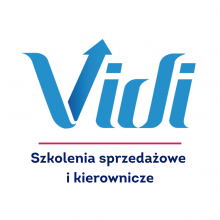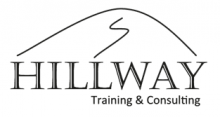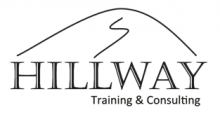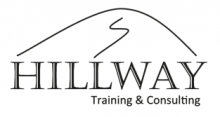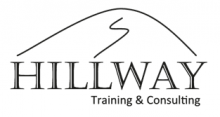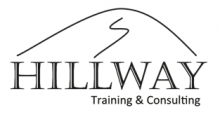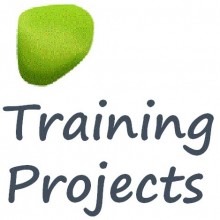Program: Negotiation training
Duration: 2 days
Objective: To enhance negotiation skills through understanding key concepts, strategies, and techniques, enabling participants to negotiate effectively in various business contexts and achieve mutually beneficial outcomes.
Day 1: Fundamentals of Negotiation
09:00 – 09:30 | Introduction and Opening
- Welcome participants and outline the objectives and agenda of the workshop.
- Introduction to negotiation: definition, importance, and the role of negotiation in business.
09:30 – 11:00 | Understanding Negotiation Styles and Approaches
- Overview of negotiation styles: competitive, collaborative, accommodating, avoiding, and compromising.
- Identifying your negotiation style and adapting to different situations.
- Exercise: Self-assessment of negotiation style and group discussion on real-life negotiation experiences.
11:00 – 11:15 | Coffee Break
11:15 – 13:00 | Key Elements of Successful Negotiation
- The negotiation process: preparation, discussion, proposal, bargaining, closing, and commitment.
- Importance of preparation: setting objectives, knowing your BATNA (Best Alternative to a Negotiated Agreement), and understanding the other party’s interests.
- Exercise: Developing a negotiation plan — identifying goals, interests, and possible concessions.
13:00 – 14:00 | Lunch
14:00 – 15:30 | Building Rapport and Effective Communication in Negotiations
- The role of rapport and trust in negotiations: how to build and maintain positive relationships.
- Techniques for effective communication: active listening, asking questions, paraphrasing, and managing non-verbal cues.
- Exercise: Role-playing scenarios to practice building rapport and effective communication.
15:30 – 15:45 | Coffee Break
15:45 – 17:00 | Persuasion and Influence Techniques
- How to use persuasion and influence to achieve your negotiation objectives.
- Techniques such as framing, anchoring, and mirroring to guide the negotiation in your favor.
- Exercise: Practicing persuasion techniques in simulated negotiation scenarios.
Day 2: Advanced Negotiation Strategies and Techniques
09:00 – 09:15 | Recap and Reflection on Day One
- Review key learnings from Day One.
- Introduction to advanced negotiation strategies.
09:15 – 10:45 | Handling Difficult Negotiations and Conflicts
- Managing emotions and staying composed under pressure.
- Techniques for dealing with difficult negotiators: handling aggressive tactics, deflecting criticism, and finding common ground.
- Exercise: Simulating challenging negotiation scenarios and conflict resolution techniques.
10:45 – 11:00 | Coffee Break
11:00 – 12:30 | Negotiating in a Multi-Party and Cross-Cultural Context
- Strategies for multi-party negotiations: managing multiple interests, building alliances, and reaching consensus.
- Understanding cultural differences in negotiation: adapting your approach to diverse cultural norms and practices.
- Exercise: Multi-party negotiation simulation with cross-cultural elements.
12:30 – 13:30 | Lunch
13:30 – 15:00 | Closing the Deal and Ensuring Commitment
- Techniques for closing negotiations effectively: summarizing agreements, securing commitments, and avoiding common pitfalls.
- How to draft agreements that are clear, concise, and leave no room for misunderstandings.
- Exercise: Practice closing negotiations and drafting agreement terms.
15:00 – 15:15 | Coffee Break
15:15 – 16:30 | Ethics and Integrity in Negotiations
- The importance of ethics and integrity in negotiations: building long-term relationships and maintaining a positive reputation.
- Recognizing and avoiding unethical negotiation tactics.
- Exercise: Discussion and case studies on ethical dilemmas in negotiation.
16:30 – 17:00 | Closing and Summary
- Summary of key aspects of negotiation techniques and strategies.
- Q&A session and discussion of next steps for personal and professional development.
- Presentation of certificates of completion.
Participants will learn:
- Identify and Adapt Negotiation Styles: Understand various negotiation styles and learn how to identify and adapt your approach according to the negotiation context and the other party’s style.
- Master the Negotiation Process: Gain insights into the key stages of negotiation, including preparation, discussion, proposal, bargaining, and closing, to navigate negotiations systematically and confidently.
- Build Rapport and Communicate Effectively: Learn techniques for building rapport and trust with negotiation partners, as well as how to communicate effectively through active listening, questioning, and managing non-verbal cues.
- Use Persuasion and Influence: Develop skills in persuasion and influence, employing techniques like framing, anchoring, and mirroring to guide negotiations towards favorable outcomes.
- Handle Difficult Negotiations and Conflicts: Learn how to stay composed in challenging negotiations, manage conflict, and deal with difficult negotiators using specific strategies and techniques.
- Negotiate in Multi-Party and Cross-Cultural Settings: Understand how to handle the complexities of multi-party negotiations and adapt to cultural differences, ensuring successful outcomes in diverse settings.
- Close Deals Effectively and Secure Commitment: Master techniques for closing negotiations, ensuring all parties are committed to the agreed terms, and drafting clear and enforceable agreements.
- Maintain Ethics and Integrity in Negotiations: Learn the importance of maintaining ethics and integrity in negotiations, recognizing and avoiding unethical tactics, and building long-term, trustworthy relationships.
Participants will understand how to:
- Prepare effectively for negotiations, identifying goals, interests, and alternatives to approach discussions with a clear strategy.
- Adapt their negotiation style to different situations and counterparts, enhancing their ability to achieve desired outcomes.
- Build rapport and trust with negotiation partners, fostering positive relationships that support successful negotiations.
- Use communication techniques like active listening, questioning, and managing non-verbal cues to enhance understanding and cooperation.
- Employ persuasion and influence techniques to guide negotiations in their favor, while maintaining a collaborative approach.
- Handle difficult situations and conflicts, staying composed under pressure and finding constructive ways to resolve disputes.
- Navigate multi-party and cross-cultural negotiations, understanding and respecting diverse perspectives and reaching consensus.
- Close deals effectively, ensuring clear agreements that are fully understood and committed to by all parties.
- Uphold ethics and integrity, building a reputation as a trustworthy negotiator and fostering long-term business relationships.
This workshop will equip participants with practical negotiation skills and strategies to navigate complex negotiations confidently and achieve win-win outcomes in a variety of professional settings.





























